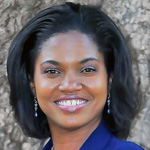
“Lay up treasures in Heaven where moth and rust doth not corrupt...” and “A wise man leaves an inheritance for his children...” are Scriptures that are both true but seemingly vastly apart in resulting action.
Recently, I started a business. I had been researching ways for additional income and learning about how to be wealthy. I began reading books on earning, investing, multiple streams of income, being a founder, entrepreneur - all of it. I read it and liked it and desired it and then I felt…guilty about it.
I felt guilty about wanting to earn more money. I couldn’t quite understand it. It felt carnal to model my life after millionaires, and I couldn’t even form the words in my mouth to say I would become one. Such words sounded fleshly and Hellenistic. I knew I needed more money to function, achieve certain goals and leave an inheritance behind, but I wondered if this desire for wealth was “un-Christian”. I was having these “doesn't-sit-right moments”, but could not figure what caused it.
Heavenly Bank
Why did I feel “bad” about wanting to earn money and be intentional about gaining it? Was it the sneer of others when a pastor rolled out in a luxury vehicle with a mansion on a hill? I knew the stigma of the prosperity message and had seen the “cattle on a thousand hills” be taken to wrongly mean God is a giant bank in the great ‘by and by’. But the God who said rejoice in suffering also said He would take care of my needs, and He was the God who outfitted the majestic Garden of Eden (rivers of gold anyone?) and guided the construction of one of the most palatial buildings in the Old Testament (gold, gold and more gold).
Processing one night the negative reaction of my siblings to the statement “I want to build an empire”, I realised that this visceral response I had to money may be more widespread in the Christian community than Ionce imagined.
To leave an inheritance for my children, I thought, I must amass some sort of wealth on earth to give them. Notwithstanding the more noble legacy of teaching virtue and integrity and life surrendered to Christ, I didn’t want it to be that my legacy was having just enough money to survive.
To make it plain, I am in no way saying I had to be rich, but I realised that this “God is in control” reaction had influenced a sort of laissez-faire attitude to finances.
Financial advisor
A recent talk with one of my aunts proved quite interesting. My aunt is in full-time ministry and has accomplished many things in her life. As a woman in full-time ministry, however, her every need was dependent on God through the kind gifts of sponsors. She had seen God to be faithful, but was admittedly tired of the frustration of having just enough.
“Stacy”, she recounted with a wise look on her face, “I knew the God of the little things - a little cash here, a small victory there; but I questioned, what about the big things? Where was the big things God?” As we talked she described a challenge she gave the Lord and an outlook that guided her perspective.
She told God she was going to serve Him as Luke 10: 27 says: with all her “heart, soul, strength and mind”, surrendering all her finances and her future to Him, but that He must take care of her in a way that others saw that He was a good Father. She recounts that the most miraculous thing happened - excess. She saw God guiding every single step and meeting all her needs with surplus to give away.
Heart posture
As I talked to people who loved the Lord and were successful in business, finances and management, one thing that stood out to me was their position on the money they made. It was important to them to be financial literate, but God determined what was best. They would give, save and invest with the guiding principle that what was theirs came from God and ultimately was God’s. It wasn't that it was wrong to be motivated to be financially literate and intentional, but money shouldn't be the starting point.
Generosity (1 Tim 6:17-19), sacrifice (Mark 12:41-44), fairness (Matthew 23:23) are what should influence money matters and not pride, self-indulgence or fear.
As believers, our view on money should be transformed by the Gospel. Money decisions should be guided by God and not the world. It is one that understands God allows some to be rich, some to be poor; and yet He takes care of all. This means we are wise with our money, we understand money, we work hard (slothfulness is not high on Gods list of things He likes), we consult God about our money, we give and we trust God with the outcome.
“A heart transformed by the Gospel will result in changes; not just to what we believe about money, but also what we do with it”.
(Craig Cagle, financial coach at Crossway Community Church)
 Stacy-Ann Smith is a young writer from the West Indies and the 2017 International Young Writer Theology Award and 2018 International Basil Sellers joint winner.
Stacy-Ann Smith is a young writer from the West Indies and the 2017 International Young Writer Theology Award and 2018 International Basil Sellers joint winner.

Stacy-Ann Smith is a Press Service International Young Writer and winner of the Basil Sellers Award.